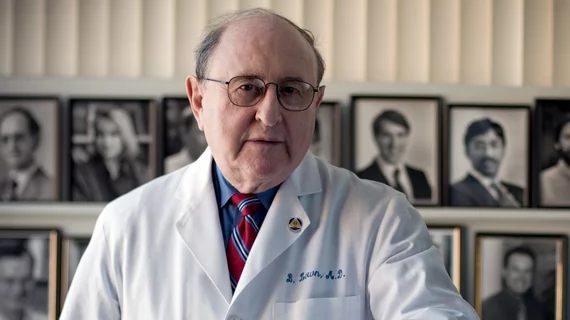Bernard Lown, MD, a world-famous cardiologist celebrated for his groundbreaking cardiac research and antiwar activism, died on Feb. 16 after a long battle with congestive heart failure. He was 99 years old.
Lown made a lasting impact on his adopted home of Boston, where he was an instructor at Harvard University and a physician at Brigham and Women’s Hospital. He was an innovator in the field of arrhythmia research, introducing lidocaine as a treatment option, and led the development of the direct current defibrillator.
In 1973, Lown founded the Lown Cardiovascular Research Foundation, a nonpartisan healthcare organization focused on “advocating bold ideas for a just and caring system for health.” It was later renamed the Lown Institute. Lown also received the 2012 Lifetime Achievement Award from the British Medical Journal for his impact on the practice of cardiology.
In addition, Lown helped found an antiwar coalition, International Physicians for the Prevention of Nuclear War, that won the 1985 Nobel Peace Prize for its efforts.
“Bernard Lown was one of the greatest physicians of the last, or any century, and I was privileged to call him my teacher, colleague, and friend,” Vikas Saini, MD, president of the Lown Institute, said in a statement. “Dr. Lown embodied a rare combination of technical skill, scientific acumen, and profound humanism. His commanding yet deeply comforting presence allowed him to connect with his patients in a way that was truly dazzling to generations of young doctors in training at Harvard.”
While Lown will be buried in a private ceremony, a public memorial service is expected to be announced at a later time.
The Boston Globe’s in-depth obituary can be read here.

